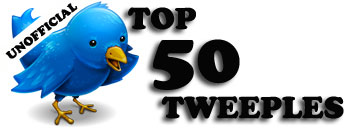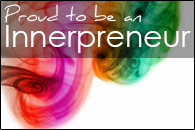I grew up in Buffalo -- the Rust Belt -- during its peak declining years of the 1960s and 1970s. I moved away from that economic and personal wasteland, the land of no opportunity, as soon as I graduated from high school. I went to the best place I could think of, Washington, DC, to attend college and build a life.
HOWEVER -- over the years, I noticed a strange thing: As much as I wanted to put my "ordinary person" economically marginal past behind me, it continued to fascinate me. How do people live when their opportunity to advance is so limited? When nothing you try seems to add up, because the fundamentals needed for growth are just not there? When being an "ordinary person" is seen as a worthy aspiration?
Even though my career was a very "Washington" one, working in advocacy groups on public policy issues, major philanthropic and charity organizations pursuing worthy causes, something was missing. Those liberal advocacy groups seemed to point toward an unachievable future -- "If only government would adopt our plan." All those plans would never be adopted, so I couldn't accept those public goals as my goal.
It was only when I started a consulting business working with those groups that I started to see my way: I found I liked the business part much better than the substance of the work I was doing. How could I like marketing better than hearing the Secretary of the UN speak? Or than interviewing famous people? Or working on critical national issues?
I began to get a handle on how much Buffalo was still with me. The questions my adolescent self asked (and abandoned) still gnawed at me. Future Shock, Alvin Toffler's book that came out in the early 1970s, predicted that the economy would change from one based on large corporations to one based on technology-mediated smaller concerns (and he was the one who recommended the break-up of AT&T to its management). As a high school student, I was keenly interested in reading it -- but did not, out of fear...I somehow thought it would destroy my careful adaptation to my world. I had been biding my time to leave....since I was about 12 years old. The freedom would have to wait.....
I later came to see his book as a bit glib....But Toffler's life really appealed to me....a writer who followed his instincts about the world, researched them, and wrote what he saw.
At this juncture in my life, I can see that, intentionally or not, I have lived the same way. I learned about the world through my work....as a counselor to pregnant teens, to adult women offenders, and teenage boys in foster care, I met a rich stew of misdirected people and learned plenty about frustration and self-defeat; I moved on.
As a Washington fund raiser and consultant, I learned plenty about how public issues are packaged, sold, and almost never resolved. Keeping the game going is the game. And I saw that that is actually not a bad thing.
But I was ready to move on to something more meaningful. And at every turn in my life, some core questions from my Buffalo years came back to nag me:
* What makes some economies grow while others decline?
* How can we ensure that people aren't poor, that they have the resources to live a good life, one without despair and hopelessness?
* Is the emerging global economy capable of stability?
And perhaps the most meaningful to me personally --
* How do people have to change to participate in this global economy?
I sometimes think I put the cart before the horse -- in that last sentence, I'm saying that we should change when the economy changes, rather than just continue to be ourselves. Well, I stand by that assertion.
Freud said that man has two fundamental needs -- love and work. We change in order to live with the people we love....and we must change in order to work. History is full of stories of difficult change undertaken when the world changed -- displaced farmers having to GET UP BY THE CLOCK AND NOT THE SUN to report to a factory rebelled against this regimentation that had no precedent.
The price of change is high -- but the promise, I believe, is a greater sense of self, of self-expression and self-discovery. I am not alone in calling this quality resilience.
And resilience is fundamental to the American character. It is our gift to the world. Our personal resilience is about far more than just us, it is about the continuity of our national journey. Our resilience has built this country over centuries, and it will save it now.
I believe that RESILIENCE WORKS. And I intend to explore it in this blog on several levels:
(a) Personal Resilience
(b) Business Resilience
(c) Economic Resilience.
All of these are braided together....we contribute to and we draw on the pool of American resilience, especially now.
This is the End and a New Beginning
1 week ago









4 comments:
Hey, Susan, nice job! Looking forward to reading more.
Beth
Damb girlfriend! I'm blown out of the water. So much has come together in this first post and it's so clear! A lot has gone into this, and I'm truly wowed and am hungry to hear what you "need" to say to us!
Susan, you have done a great job! And I completely agree since Resilience is one of the fundamental keys!! Can't wait to read more.
Sharon
A very nice start Susan. How often will you be updating this? I look forward to seeing your work grow and publish as you come more and more into your won.
Post a Comment